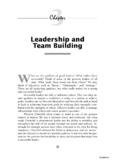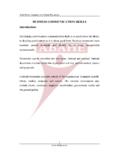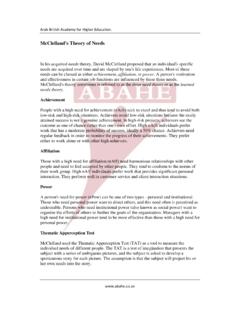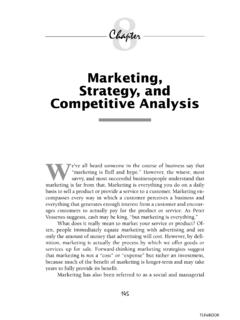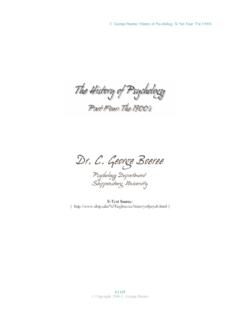Transcription of The Effect of Applying Fair Value on the Financial ...
1 UNIVERSITY OF ESSEX THE ESSEX BUSINESS SCHOOL The Effect of Applying Fair Value on the Financial Statements of UK leading companies By Bassam Kazmouz 0948799 Supervisor Dr Robert Wearing September 2010 Dissertation submitted in partial fulfilment of the requirements for the award of ACCOUNTING AND FINANCE (MSC) 10/09/10-04:05:28 <be981-7_09a2_0948799_4f5492f523af4a9b0039108999ce08f850525c9e>Arab British Academy for Higher TABLE OF CONTENTS I. Introduction .. 5 Overview .. 5 Study 8 II. Fair Value .. 11 Fair Value Concept .. 11 Historical Cost 12 Accounting Valuation Methods and Their 13 Historical Cost .. 15 Replacement Cost .. 16 Fair Value (Exit Price) .. 17 Present Value .. 18 Deprival Value .
2 19 Fair Value Implementation .. 19 The Reliability and Relevance of Fair Value and Historical 21 Fair Value and Auditors .. 26 Fair Value to Whom? .. 27 Advantages and Disadvantages of Level 2 and Level 3 of Fair Value .. 28 Fair Value and 29 10/09/10-04:05:28 <be981-7_09a2_0948799_4f5492f523af4a9b0039108999ce08f850525c9e>Arab British Academy for Higher III. Literature Review .. 31 Fair Value , Stewardship and Agency Costs .. 31 Earning Management .. 33 Fair Value and 38 Fair Value for specific items in Financial statements .. 40 Fair Value and Financial 42 IV. Sample and Methodology .. 45 Data Collection .. 45 The First Adoption of IFRSs .. 46 The Impact of First Adoption of Fair Value on Studied companies in 200547 50 Data Pre-processing.
3 54 Data Inconsistency .. 55 Getting Expected Values .. 55 Experimental setup (Predicting Expected Values).. 56 T 58 V. Results and 59 VI. Conclusion .. 61 64 10/09/10-04:05:28 <be981-7_09a2_0948799_4f5492f523af4a9b0039108999ce08f850525c9e>Arab British Academy for Higher LIST OF TABLES Table 1 Top 20 Capitalization companies in Table 2 Average of the 5 variables 1990 - 1994 .. 56 Table 3 Average of the 5 variables 1995 - 1999 .. 56 Table 4 Average of the 5 variables 2000 - 2004 .. 56 Table 5 Actual and Expected Values of the 5 Variables 2005 57 Table 6 t-test Results .. 58 10/09/10-04:05:28 <be981-7_09a2_0948799_4f5492f523af4a9b0039108999ce08f850525c9e>Arab British Academy for Higher CHAPTER I Introduction Overview It has been argued that international accounting standards board (IASB) are moving away from the concepts of stewardship historical cost and historical cost towards the concepts of providing useful information for making decisions based on fair Value and cash flow (Ball, 2006).
4 Fair Value is the most controversial issue of broadly adopted International Financial Reporting Standards (IFRSs). Belkaoui (2004) argued that accounting system should be set to produce relevant information for rational decisions making. While the users needs are different, accounting system cannot provide information which is desirable for all users decisions. So Financial statements preparers should decide on the kind of information which should be included in and which should not, aiming to achieve high level of providing effective information towards making rational decisions. Fair Value Financial statements can reflect the firm s economic reality which enhances not only the efficiency of the invested capital, but also the management efficiency, Financial statements harmonization and the justness of income distribution.
5 Most of the countries economies are developing; new accounting standards are needed to fulfill the gap of needs which are produced by the new industries and transactions. IFRS was set to fill this gap and enhance the Financial statements quality and harmonization. IFRS which was issued by IASB in London is gaining an increasingly important attention around the world as global standards for the Financial 10/09/10-04:05:28 <be981-7_09a2_0948799_4f5492f523af4a9b0039108999ce08f850525c9e>Arab British Academy for Higher statements. EU Regulation 1606/2002 required the listed companies in the European stock market to apply IFRS on their Financial statements. The implementation of IFRSs on the Financial statements has produced many effects on the firms adopting these standards.
6 Iatridis (2010) studied the effects of Applying IFRS and its fair Value on firms. He found that Applying IFRS has a positive impact on the Financial position and firm s performance through increasing the growth and the profitability, and improving the leverage ability by reducing the future risk. In contrast, fair Value s problem is that it always assumes that the market is relatively perfect and complete. If this market is available, fair Value provides useful information for the passive investors and creditors depending on current market prices. Fair Value opponents claimed that market is not always relatively perfect and complete which requires more monitoring of the Financial statements in behavior of shareholders and presenting the past transactions by using specific measures (historical cost) which reflect the real opportunities that the firm had to increase shareholders Value (Whittington,2008).
7 Fearnley et al. (2010) argued that while UK is forced to use IFRS responding to the EU requirements, UK government should work hard to overturn it. Furthermore, she claimed that even though IFRS did damage UK Financial statements, UK accounting standards setters still aim to increase its burden on the companies , including small ones. The main reason which forced the use of fair Value is historical cost problems during the inflations and the government interference aiming to provide the real economic Value of the firm. Adopting IFRS in EU provides a base for preparing Financial statements which are more convergent and has pushed for higher levels of governance. Implementation of fair Value will have a significant impact on the work of accountants and auditors that by using fair Value they produce information 10/09/10-04:05:28 <be981-7_09a2_0948799_4f5492f523af4a9b0039108999ce08f850525c9e>Arab British Academy for Higher depending on future evaluations rather than on historical values (Langendijk, Swagerman and Verhoog, 2003).
8 The most important question which should be answered after the Financial crisis and the recent mortgage meltdown is whether firms should use historical cost or fair Value . The two boards FASB and IASB are moving towards the use of fair Value and away from historical cost (Foster and Shastri, 2010). Accounting standards setters believe that fair Value increases the relevance of Financial statements, improves the comparability, transparency and the timeliness of the Financial information, which leads to more useful information for users in making their decisions and evaluating the equity (Christensen and Nikolaev, 2009). Recently, IFRS has been adopted in many countries (approximately 100 countries) around the world.
9 Furthermore, many countries, such as Mexico, Canada, Japan and India, have declared that they are powerfully going to adopt or converge with IFRS during the period from 2009 to 2011 (Kinkela, Harris and Malidretos, 2010). Veron (2008) pointed out that accounting standards should be improved to get the objects of fair Value accounting. Nowadays, the Securities and Exchange Commission (SEC) is highly interested in using IFRS. SEC has been set on the 2nd of March 2010 as a commission statement which works to enhance the convergence and globalism of the accounting standards. This statement put a list of objectives about harmonization to be obtained: 1. Provide more comparable Financial information for the investors and industries over the world.
10 2. Reduce the costs which the multi listed companied have to bear. 3. Increase the comparability between the capital markets. 4. Enhance the efficiency of invested capital and Financial information. 5. Provide a strong base for improving the global economic growth rate. 10/09/10-04:05:28 <be981-7_09a2_0948799_4f5492f523af4a9b0039108999ce08f850525c9e>Arab British Academy for Higher Furthermore, this statement improves the US consideration of IFRS and there is a possibility that the US is going to adopt it as early as 2014 (Kinkela, Harris and Malidretos, 2010). Study Motivation The two boards FASB and IASB are moving towards the usage of fair Value and away from historical cost (Foster and Shastri, 2010). Accounting standards setters believe that fair Value increases the relevance of Financial statements, improves the comparability, transparency and the timeliness of the Financial information, which leads to more useful information for users in making their decisions and evaluating the equity (Christensen and Nikolaev, 2009).


